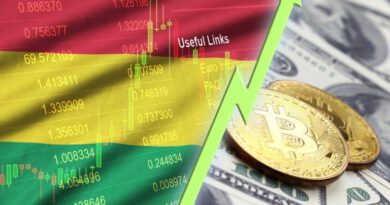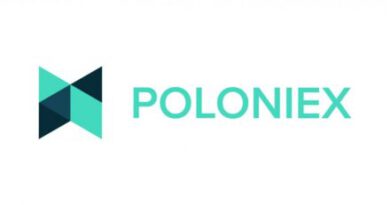14 Crypto Exchanges Banned from Apple Store in South Korea’s Crackdown
Key Takeaways:
- Apple’s App Store removed 14 unregistered crypto exchange apps in South Korea.
- Platforms including KuCoin and MEXC were barred for not registering with local authorities.
- Regulators say the move aims to prevent money laundering and protect investors.
South Korea Intensifies Regulatory Pressure on Crypto Apps
South Korea ramps up its campaign against unregistered virtual asset operators, by blocking 14 cryptocurrency exchange apps from the Apple App Store. The ban took effect on April 11, 2025. It follows action from the CCI, which is targeting overseas crypto platforms such as KuCoin and MEXC for allegedly failing to register with South Korean regulators before offering services.
The Google Play store had a similar crackdown when on March 26, it also removed 17 apps related to unregistered exchanges. The FSC and FIU have identified 22 platforms in total, of which 17 are already restricted on Google’s platform.
South Korea Users Locked Out: What the App Ban Means for Access and Safety
Blocked apps can no longer be downloaded or updated on Apple’s South Korea store, the FSC said on April 14. The regulators have made it clear that unregistered commercial activity is a crime that is punishable by up to five years in prison or a fine of up to 50 million won (around $35,200).
The action is a part of South Korea’s rigorous application of the Act on Reporting and Use of Specific Financial Transaction Information, which mandates that foreign virtual asset service providers (VASPs) report their operations before dealings with Korean users can begin.
Users of the affected platforms who are already using them will not receive application updates or official customer support from within Apple’s ecosystem, which could leave their accounts vulnerable to security concerns or simply inaccessible.
South Korea’s Crackdown Aims to Curb Money Laundering and Protect Investors
Attacking these unregistered apps and websites is key to preventing financial crimes, the FIU has said. Platforms can evade anti-money laundering (AML) controls and users can be left vulnerable to hacks, scams or losing their funds. The agency will continue working with relevant bodies to keep preventing money laundering and mitigating user harm through further blockades of both apps and websites.
A major concern is that unregistered exchanges have no user protection policies. Such platforms do not have any requirements to segregate customer deposits, report suspicious activity or maintain adequate KYC processes, unlike their registered Korean exchange counterparts. Consequently, user funds held on these platforms could be at risk in case of fraud or insolvency.

Crypto Booms in South Korea, But So Do Regulatory Firewalls
The ban was instituted as crypto activity in South Korea continues to hit unprecedented heights. As of March 31, more than 16 million South Koreans — over 30% of the population — used crypto trading platforms. Analysts expect that number to top 20 million by the end of 2025.
Institutional interest in cryptocurrencies is also boosting the momentum. As of March 27, the country’s public officials were in possession of $9.8 million worth of digital assets like Bitcoin, Ether, XRP and Dogecoin. Amid rapid adoption, South Korea warns: legal compliance is mandatory. Unregistered platforms, no matter how popular, won’t operate. The goal—balance innovation with consumer protection.
Legal Risks Multiply for Unlicensed Crypto Platforms in South Korea
There are well-defined criteria under South Korean law that establishes whether a foreign platform is actively engaging with domestic users. Factors include:
- Providing a Korean-language website
- Running marketing campaigns targeting Korean residents
- Supporting Korean won (KRW) transactions
Under these circumstances, failure to register is considered illegal domestic conduct, irrespective of the company’s base of operations. So far, the FIU has identified 22 such operators, since 2022, and that number could expand further.
An official list of registered VASPs is maintained and updated on the FIU government’s company website. The list will be updated regularly and users should withdraw their assets from non-compliant exchanges.
South Korea Sets the Tone for Global Crypto Regulation Trends
South Korea’s tough love signals a world of change in crypto governance. While jurisdictions including the U.S. and European Union continue to pursue measures to change with the times, high crypto adoption countries — such as South Korea — are setting the stage for more formalized oversight.
Kim So-young, Vice Chairman of the FSC, recently noted that international trends in crypto regulation are quickly shaping domestic policy, implying that its actions are part of a wider global trend.
The blocking of these apps isn’t an isolated decision — it marks the beginning of a methodical campaign to corral the crypto industry in South Korea into total regulatory compliance, even if that means excluding some of the world’s largest platforms.
More News: South Korea Eyes Opening Crypto Market to Foreign Investors Amid AML Challenges
The post 14 Crypto Exchanges Banned from Apple Store in South Korea’s Crackdown appeared first on CryptoNinjas.
CryptoNinjas



















